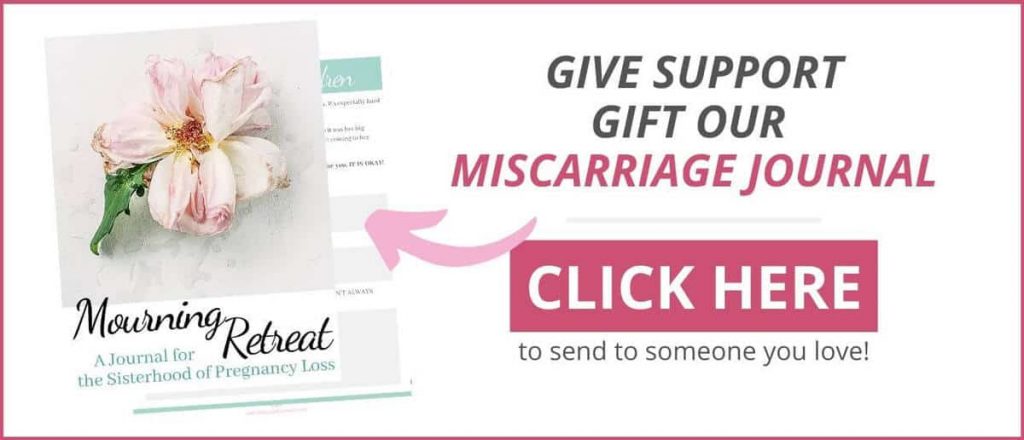This article is the fourth installment of a series by Michelle Valiukenas, founder of the Colette Louise Tisdahl Foundation.
This is one loss mom’s journey of finding her way after losing her daughter, Colette. You can find part one of Michelle’s story here, part two here, and part three here.
There are many things over the years that I thought I would be labeled as an “expert” in, whether it was in my career, my personal life, or just general pop culture, but never could I have imagined that I would become an expert in losing a child and what to say to a parent who lost a child.
In the last two years though, about once a month or so, I get contacted by someone whose loved one has had a loss and asked what they should say and do.
I will clarify, though: I am not an expert, I do not have a degree in psychology, psychiatry, counseling, social work, etc.
All I really have is my experience as a bereaved parent—what I appreciated from some people and what I felt was lacking in others—and the discussed and shared opinions of other bereaved parents on the same topic.
Because of these experiences, I feel qualified to share with you what to say to a parent who has lost a child. Of course, everything I say here should be tailored to that person’s specific personality and circumstances.


This site contains affiliate links, meaning that we earn a small commission for purchases made through our site. We only recommend products we personally use, love, or have thoroughly vetted.
What to Say In the Immediate Aftermath of Loss
Sometimes, the moments immediately after a parent has lost a child are the hardest for those surrounding and supporting them, too. We wonder how and what to say to a parent who has lost a child, as their grief is unimaginable and all-encompassing.
Here are my suggestions:
1. Say Something
It’s simple.
Show up, be there for parents who have experienced the worst thing that any parent could experience. Yes, it is uncomfortable to talk about death, particularly related to children, but swallow the discomfort and show up– say something.
Losing a child is one of the most isolating experiences anyone can have. You feel like you are the only person who has ever had that experience and that you are branded for life with a proverbial scarlet letter that marks you as the person with the dead child.
When people show up and are willing to overcome that discomfort and be there in the uncomfortable, it feels like you are not so alone.
So show up, say something, and continue to show up.
And if you’re looking for something thoughtful to gift loss parents, I recommend these 14 thoughtful gifts for parents who have lost a baby.
Your words and time are the most important things to give, but sometimes if you don’t know what to say, you can let a thoughtful and appropriate gift speak for you, too.
2. What You Should Say to A Parent Who Has Lost a Child
You say, “I am sorry, I love you,” or be honest and say you do not know what to say.
My husband talks about how one of the best things he heard was when he went back to work. One of the interns who had barely met him prior to Colette’s death said something along the lines of “I don’t know what to say, but I’m here if you need me.”
Losing a child goes against everything natural; it defies the circle of life.
There are no words, no explanation, no way to make things better. Saying that you don’t know what to say means something because it means you get the serious blow we’ve been dealt.
Remember that there is no getting over it, there’s no fixing it, just be there, be willing to sit with parents who have lost a child in our grief.
Choose Your Words Carefully
While saying something is tip number one, you should also be careful about what you are saying. Take words like “at least” out of your vocabulary.
No parent wants to hear that “at least” their child isn’t in pain or “at least” it happened early. Whether you are five weeks pregnant or your child was five weeks old, it is still a major loss. Acknowledge it as such and avoid “at least” at all costs.
If your friend or loved one has had a miscarriage, you might want to consider reading Katy’s article on what not to say after a miscarriage, featured on Scary Mommy, too.
Religious Undertones
This is always a tricky subject. Some parents who have lost a child find themselves to have a closer relationship with their religious and spiritual beliefs after loss; others find themselves angry and distant.
Don’t assume either option, and follow the parent’s lead.
Don’t assume that a parent will be comforted by phrases such as “God needed another angel” or “it’s in God’s plan.”
For me, as I have previously written, I found that my religion and my beliefs were comforting to me prior to May 31, 2018, but after Colette died, I have had a very difficult and often fractured relationship with my faith.

How to Support Loss Parents a Few Months After Loss
Showing up for loss parents shouldn’t be relegated only to the moments and days after loss. This is something that you will need to continue showing up for.
This is my advice for supporting loss parents a few months after their loss:
1. Say SOMETHING
Time will pass, and people will drop off from reaching out and being there. Don’t be that friend. The pain of losing a child does not go away ever, and so you should not go away either.
Continue to follow the advice above; continue reaching out and offering to be there. Sometimes, a bereaved parent does not want to deal with people, so offer support, and then step back if you are not needed at that moment. It’s nothing personal.
The best messages I got in those first few weeks and months were ones that said or implied that they were there, but did not need me to respond or do anything.
A family friend used to send me text messages a few times a week with just a heart. It seems so small, but it meant so much.
It allowed me to feel that love, but not to have to engage unless I chose to do so. It let me know that she was there if I needed her without needing me to comfort her.
2. Continue to Carefully Choose Your Words
Again, continue to avoid words like “at least” to parents who have lost a child.
You may find some intellectual comfort in statements like “at least you can get pregnant” or “at least you had a few days with her,” but loss parents do not.
We wanted that pregnancy, that child, that experience. Whatever came before or may come after does not matter.
Also, this is when people start to say things about “moving on” and “getting over it.” I will tell you that part of me was left in the world that existed prior to Colette’s death, so moving on is not something I could do.
Getting over it is also ridiculous.
No one would tell a parent of a living child at some point to “get over it” and to stop focusing on their child, so why tell a bereaved parent that??
There is no moving on and no getting over it. There is dealing with it better; being able to cope better; having some time and space to work through the pain; but no “moving on” and no “getting over it.”
3. Do Not Assume that Another Child Will Take Away the Pain
At some point after loss, parents may want to have another child. Making the decision to try again is tough and scary, especially if there have been health risks to mom.
Respect their decision, whatever it might be, and support them.
Do not assume they will try again, nor should you ask when they are going to have another child. And above all, do not assume that another child will take away the pain of the loss.
In fact, having another child dregs up some of the pain and magnifies it. When our son was born after Colette, I was so thrilled, and I love being his mom, but I also miss Colette more and feel the pain of her loss more deeply now that he’s here.
It is so thrilling to look at him and hold him, but there have been many times when I look at him and think you should have a big sister here, fighting for my attention, trying to hold you, figuring out how to annoy you as big sisters do.
It is a huge loss to know that his only sibling (at least currently) is not present with him here and that I will never get to see Colette as a big sister.

4. Be Patient
We are not the same person you knew before our loss.
We will never “return to normal” because, unfortunately, this is our new normal. You may think you have completely lost us, but there will be key parts of us that will return, perhaps modified, but will still there.
Be patient; know that we are just as confused and overwhelmed by this loss, and we are also still figuring this out.
5. Choose Your Stories Carefully
I had (and still have) issues with those people around me who seemed to be complaining about their kids all the time.
It is tough to be mourning a loss and thinking of how badly you want your child, the one that was supposed to be here, and hearing how someone else who has a living child seems to not be thankful for their luck.
Now, I know that your kid having a meltdown in the middle of the toy aisle or drawing on your beautifully painted walls feels like the worst thing in the world, but we actually experienced the worst experience of any parent. And we would beg, borrow, and steal to have those moments you dread with our child.
So, at least for a while, find someone else to tell your, “my kid is a monster” stories to.
6. Remember Important Dates
If you know what a loss parent’s expected due date was, reach out on that day.
Reach out for birthdays, angelversaries (the day they lost their child), holidays, and special occasions.
Nothing feels worse than a Mother’s Day or Father’s Day in which no one understands that you are, in fact, a parent–just to a child you cannot see.
If you do not remember specific dates, just reach out around the date and say I’ve been thinking about you. It still means something.

Supporting Loss Parents Throughout Their Lives
The pain of loss is something that these parents will always feel, even as time goes by. You can still support them in the following ways:
1. Keep Up the Support
If you have not noticed a trend yet, then I am here to tell you that your biggest takeaway from all of this should be: show up, show up, show up, and support, support, support.
There are so many triggers for loss parents, and they never go away. I have met many loss parents who will say that they thought they were past triggers, and then the posts about the first day of school come around, and they realize their child should be in that grade.
And then sometimes, the pain and grief comes out of the blue on a random Tuesday, and it knocks you off your feet and sends you back into the immediacy of the grief.
Whatever the trigger may be, knowing that there are friends and family willing to be there helps so much.
2. Follow their Lead
Bereaved parents will tell you, either directly or indirectly, how they want you to acknowledge their loss and their child.
For example, I sign all of our family’s cards with the four of our names and make sure that Colette is always included. Our son’s birth announcement even had a mention of his proud big sister.
So, the people that I really treasure in our lives are the ones who make sure to include her as well. The people I don’t appreciate are those who act as if we have only one child.
3. Continue to Remember Important Dates
The first birthday and first holidays are the worst in many ways, but the ones that follow are even tougher in some respects because it tends to be that every year, less people remember.
Don’t be that person. Mark it in your calendar, set a reminder, and reach out then.
Again, remember to follow their lead as to what they prefer. Some parents want to celebrate a birthday and treat it as you would if the child was living, others may ask for random acts of kindness or donations in memory, and others may just want a brief “thinking of you” and no public acknowledgement.
It’s your job to ask what helps them the most and then do that.
Last But Not Least
If at this point you’re thinking, “well I screwed this up; I did not reach out;I did not do anything and there is no repairing that,” I am here to tell you that is not the case.
You can still rectify and fix the relationship, but you have to be willing to do so and you have to fall on your sword.
One of our friends never said anything right after Colette died, but several months later, he reached out and apologized. He explained that he just didn’t know what to say, and then time went on and on and he felt like he did not know if too much time had passed.
His willingness to acknowledge that he was not there and that he knew he should have been, but wanted to be there now, meant so much to us. We are now closer friends as a result.
I know it took a lot for him to reach out and apologize, to take the blame for not reaching out earlier, and I gained a lot of respect for him as a person and as a friend.
So, if you are reading this and thinking of the bereaved parent you did not reach out to, then I encourage you to reach out and to apologize, with no excuses.
If you’ve lost a child, what’s one of the most helpful things people have done for you?












